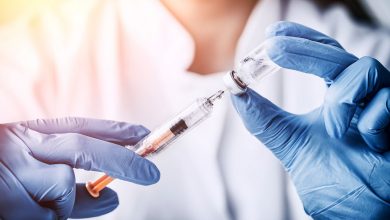Duke and NIH develop autism screening tool to improve access to care


Healthcare providers used the tablet-based application developed by the Autism Center of Excellence at Duke University to screen toddlers ages 17 months to three years old during well-child visits. After identifying toddlers who are candidates for further examination for autism spectrum disorder, they can be connected with appropriate resources,
WHY IT MATTERS
The app, called SenseToKnow, could also help healthcare providers ensure that children and families receive the support they need, according to a recent study funded by the National Institutes of Health.
The U.S. Department of Health and Human Services researchers indicated that parent questionnaires typically used in primary care settings are not as accurate as they might be in research settings, particularly among girls and children of color.
The result has been wider disparities in early autism diagnoses and interventions.
The application, developed by the Durham, North Carolina Autism Center of Excellence at Duke University, records and analyzes children’s responses to short movies that are designed to elicit a range of behavioral patterns, said NIH.
The researchers say the app can track many early signs of ASD, “including differences in social attention, facial expressions, head movements, response to name, blink rates and motor skills.”
In the study of 475 toddlers, the digital screening tool showed an 87.8% accuracy rate for detecting ASD and an 80.8% specificity for children without ASD who screened negative.
Of children who screen positive using the standard parent questionnaire, 15% are later diagnosed with ASD. Meanwhile, study participants who screened positive for ASD using the digital app had a 40.6% probability of subsequently being diagnosed with the condition.
“Combining the app with the standard questionnaire boosted the probability of a positive screen resulting in later diagnosis to 63.4%,” said NIH researchers.
After the study, which resulted in 49 of the enrolled toddlers being subsequently diagnosed with ASD and 98 diagnosed with developmental delays without ASD, children were linked to appropriate referrals and services.
THE LARGER TREND
“Children with autism have disproportionately poorer health outcomes than their disabled and non-disabled peers,” according to an article on accessing comprehensive healthcare on the non-profit Autism Speaks website.
“Children with ASD have nearly four times higher odds of having unmet healthcare needs compared to children without disabilities, whereas children with other disabilities have nearly two times higher odds of having unmet healthcare needs compared to children without disabilities.”
Dr. Daniel Turner-Lloveras, cofounder and president of SaludConTech, which supports the Latino community via digital health empowerment, said that his organization seeks to address healthcare disparities with digital health.
Leveraging technology and innovation “in a way that is accessible” can empower those in communities of color that have been left out of healthcare, he told Healthcare IT News in April at HIMSS23.
In previous studies, comparing app-based screening with conventional screening and found digital exams superior at detecting conditions like atrial fibrillation.
The two-stage smartphone screening study of 5,000 participants eHealth-based Bavarian Alternative Detection of Atrial Fibrillation compared measures of pulse wave irregularities by patients’ smartphone photoplethysmographic sensors to conventional screening, finding digital screening doubled the detection rate.
“Screening using common smartphones significantly increased the detection rate of therapy-relevant atrial fibrillation,” said lead study author Axel Bauer, professor at Innsbruck Medical University, Austria, in the study’s announcement last year.
ON THE RECORD
“The app’s ability to reliably detect children diagnosed with ASD was consistent across toddlers of different sex, race and ethnicity,” said NIH officials about SenseToKnow.
Andrea Fox is senior editor of Healthcare IT News.
Email: [email protected]
Healthcare IT News is a HIMSS Media publication.




